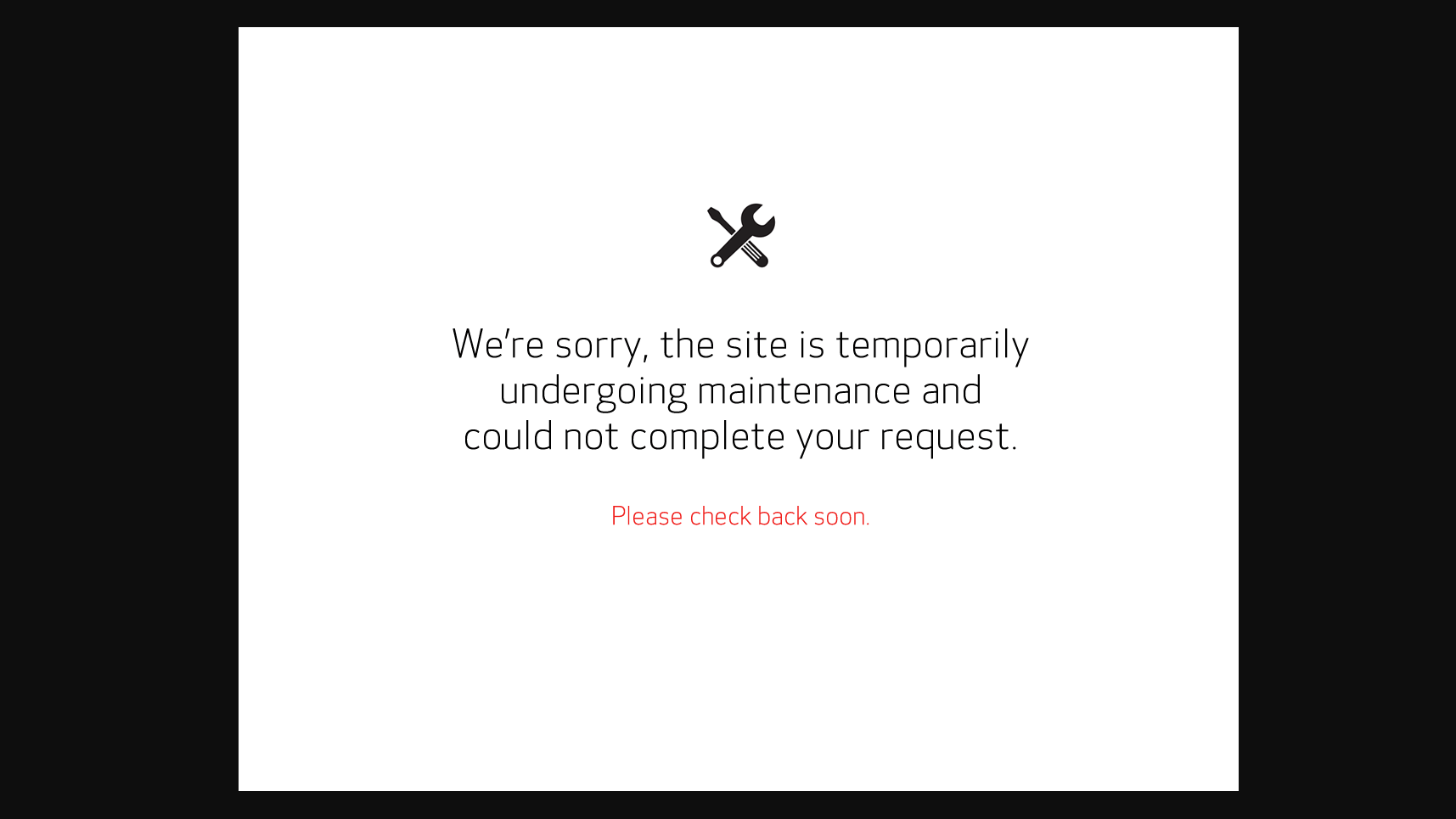Canon hit by suspected Maze ransomware attack
Two dozen domains and a host of internal services have been knocked offline


Hackers have reportedly targeted Canon’s US-based services with the notorious Maze ransomware, rendering various services offline and compromising 10TB of data.
The alleged cyber attack has affected a number of services, including Canon’s email, Microsoft Teams, its US website and several internal applications, according to Bleeping Computer, with users also unable to access various domains.
The publication obtained a partial screenshot of an alleged ransom note and also liaised with the ransomware operators, who claimed they conducted their attack yesterday, stealing “10 terabytes of data, private databases etc” in the process.
“We are aware that Canon USA are experiencing system issues – an investigation is currently taking place," a spokesperson told IT Pro. "We can confirm however that this is unrelated to the data loss we experienced on image.canon earlier this week.”
UK sites and servies appear to be unaffected by the attack.

The hackers behind Maze have been prolific in recent months, targeting a vast number of enterprises during 2020. Aerospace services provider VT San Antonio Aerospace (VT SAA), for example, was affected in June, while Xerox was among a handful of high-profile victims last month, with the ransomware group stealing more than 100GB files from the legacy printing giant.
This is in addition to the major attack on the IT services provider Cognizant earlier this year, which led to the company announcing it could lose up to $70 million as a direct result.
Sign up today and you will receive a free copy of our Future Focus 2025 report - the leading guidance on AI, cybersecurity and other IT challenges as per 700+ senior executives
Canon’s IT department reportedly distributed a message to its employees yesterday morning suggesting its US-based systems were experiencing widespread issues, affecting multiple applications, including emails and use of Microsoft Teams.
Several domains are also out of action at the time of writing, with senior security advisor with Sophos, John Shier, suggesting this could be as many as 24 services. Among these are canonusa.com, canonhelp.com and canonbroadcast.com.
“Following other recent high profile attacks, this latest salvo should be a wake-up call to all enterprises that haven't taken the time to assess their security posture and bolster their defences against these pernicious adversaries,” Shier said.
“Many of these attacks start by exploiting external services or simple phishing campaigns. Successful campaigns will often be followed by living-off-the-land techniques, abusing over-privileged and under-protected accounts, and hiding in plain sight.”
He added that enterprises must take the time to build a strong security foundation which includes multi-factor authentication (MFA) everywhere, regular patching, and user training.

Keumars Afifi-Sabet is a writer and editor that specialises in public sector, cyber security, and cloud computing. He first joined ITPro as a staff writer in April 2018 and eventually became its Features Editor. Although a regular contributor to other tech sites in the past, these days you will find Keumars on LiveScience, where he runs its Technology section.
-
 Keeper Security expands federal bench with latest senior hires
Keeper Security expands federal bench with latest senior hiresNews The security vendor has bolstered its federal team to support zero-trust access, operational execution, and government modernization efforts
-
 US small businesses are fighting off a wave of cyber attacks
US small businesses are fighting off a wave of cyber attacksNews While threats are rising, many small business owners are trying to manage the risk themselves
-
 15-year-old revealed as key player in Scattered LAPSUS$ Hunters
15-year-old revealed as key player in Scattered LAPSUS$ HuntersNews 'Rey' says he's trying to leave Scattered LAPSUS$ Hunters and is prepared to cooperate with law enforcement
-
 The Scattered Lapsus$ Hunters group is targeting Zendesk customers – here’s what you need to know
The Scattered Lapsus$ Hunters group is targeting Zendesk customers – here’s what you need to knowNews The group appears to be infecting support and help-desk personnel with remote access trojans and other forms of malware
-
 Impact of Asahi cyber attack laid bare as company confirms 1.5 million customers exposed
Impact of Asahi cyber attack laid bare as company confirms 1.5 million customers exposedNews No ransom has been paid, said president and group CEO Atsushi Katsuki, and the company is restoring its systems
-
 The US, UK, and Australia just imposed sanctions on a Russian cyber crime group – 'we are exposing their dark networks and going after those responsible'
The US, UK, and Australia just imposed sanctions on a Russian cyber crime group – 'we are exposing their dark networks and going after those responsible'News Media Land offers 'bulletproof' hosting services used for ransomware and DDoS attacks around the world
-
 A notorious ransomware group is spreading fake Microsoft Teams ads to snare victims
A notorious ransomware group is spreading fake Microsoft Teams ads to snare victimsNews The Rhysida ransomware group is leveraging Trusted Signing from Microsoft to lend plausibility to its activities
-
 Volkswagen confirms security ‘incident’ amid ransomware breach claims
Volkswagen confirms security ‘incident’ amid ransomware breach claimsNews Volkswagen has confirmed a security "incident" has occurred, but insists no IT systems have been compromised.
-
 The number of ransomware groups rockets as new, smaller players emerge
The number of ransomware groups rockets as new, smaller players emergeNews The good news is that the number of victims remains steady
-
 Teens arrested over nursery chain Kido hack
Teens arrested over nursery chain Kido hacknews The ransom attack caused widespread shock when the hackers published children's personal data